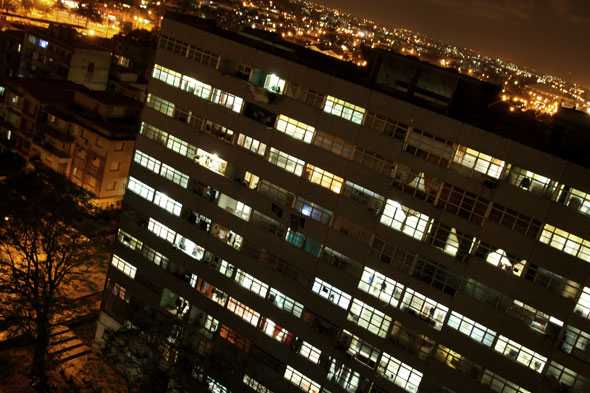
Occasional Photos by / Orlando Luis Pardo Lazo

English Translations of Cubans Writing From the Island

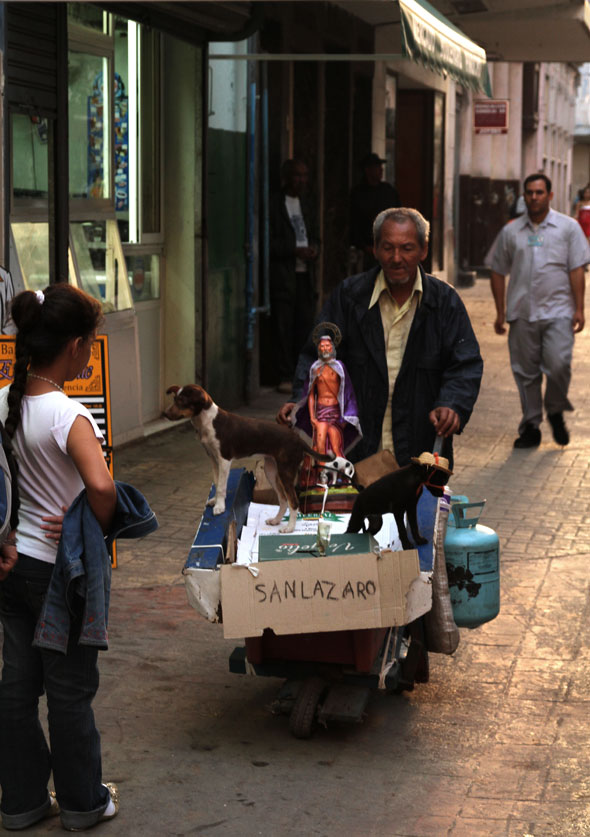

Pedro Suarez, aka “El Pantera” thought to reorganize his life according to the guidelines of the Priests of Ifa for this year. In his hands he has the brochure with the work regulations for private business. It proposes to legalize a business that for more than five years have been illegal: a small workshop for the production of guava sweetrolls.
In spite of having friends who warn him in advance, he wanted to free himself from the police reports and accusations for carrying out illegal economic activities. Until now he has never been caught, that’s why they call him “El Pantera” (the Panther), but he feels that at 50 years of age he needs to rest.
He must think of everything, for example, what to say in case the police detain him carrying more than 2000 sweetrolls. The act according to the criminal law is considered a crime of speculation and hoarding. The perfect idea occurred to him: sell orders for weddings, birthdays, and quinceañeras–girls’ fifteenth birthday parties.
“Home-based seller of prepared foods, the license that fits my needs,” he thought. Also it is the only way to distribute products in bulk without causing suspicion from the authorities.
El Pantera had a network of distribution in the city: private kiosks, Poli-cake administrators (state bakeries, that also sell their products “on the left”, that is in the black market, in Cuban Convertible Pesos), and occasionally people who resell goods in the street. All illegal activities according to the work rules for small private business.
“It’s a violation to commercialize bulk products, it’s another to do it with a state entity without being duly authorized, without a doubt it’s all illegal,” he said aloud.
While elaborating on his strategy, logic told him that he should warn his contacts, principally his small business clients, about the list of infractions. They should never say that they bought his sweetrolls to resell. Also it’s a violation to use middlemen to commercialize production. And by acting as such the middlemen they commit a violation too.
Rereading he found another problem: Justifying the legality of the materials that he uses in his business. He was obliged to buy the flour and sugar at the market in Cuban Convertible Pesos (CUCs), and bars of guava paste in the official farmer’s market. However, it was not cost-effective to buy raw materials in convertible currency to later sell his product in the national currency, or Cuban peso.
The cake, sold directly to people, cost about 2 Cuban pesos (about $.08 U.S.), he would have to declare this to be the official price. Nevertheless, he gives his product to middlemen for 1.50 Cuban pesos. If he bought the raw material at the stores selling in CUCs it would make the costs of production more expensive and force him to raise prices, in which case sales would go down.
With calculator in hand he summed it up: He had sales of 120,000 sweetrolls per month and had assumed he would invest 240,000 pesos, when in reality it was 180,000. Under these conditions he would have to declare 720,000 pesos that wasn’t entered on his assets. And if he declared that figure that they would apply a 50% tax to it.
For a week he read, reread, analyzed and formulated, but he didn’t find a way to detach himself from illegality. He would always be accompanied by the risk of being accused of engaging in illegal economic activities or of being subject to confiscation processes for illegal enrichment.
He would reach success and prosperity only if he falsified his sworn statements and bought the raw material, and the receipts for it, in CUCs on the black market. From his study of the legislation he only learned new ways to appear legal, but not how to live inside the law.
The frustration this time affected El Pantera. For the first time in his life he was ready to observe the law and he concluded that, in this country, it’s humanly impossible… unless one is willing to die of hunger.
Translated by: Dodi 2.0
February 16 2011
Help to maintain my voice “Desdelapuntabrava” in the blogosphere and Twitter with Recarga Móvil from anyplace in the world.
The internet is limited in Cuba, only high officials and foreign residents in the national territory can connect to the network from their house. Cubans cannot open a local internet account. The hotels charge from $7-9 USD per hour of internet. This is very limiting for our budgets where, given the reality that we confront, this amount is a luxury.
One way to help our effort so that our voice is heard across the blogs and social networks, like Twitter, is to help recharge our cellphones which we use to send tweets via text messages. Each text message sent this way costs 1 CUC ($1.00 USD), remaining a luxury that limits our voice and prevents us from expressing what is happening in Cuba.
The social networks have allowed many of our opinions to be known inside and outside of our country. With your help our voice will be spread by internet and, above all, it will also help to protect us since, if more people read us and know we exist and are expressing an opinion, then they become a shield for Cubans who want to tell the world what happens in this dictatorship.
You can help in the following way:
My cellphone number is: +5352541300
Silvio Benítez
Blogger of “Desdelapuntabrava”
+5352541300
Project Promoter for Voces del Barrio
Havana – CUBA
Translated by: Dodi 2.0
February 16 2011
He would often raise his fist while screaming in his high-pitched voice, his face flushed, at whomever he disagreed with. And so would the newspaper Granma, as if a breath of life had turned it into a person; as if a rare spell could make the paper body of the tabloid turn itself into flesh and bones. He would dress in a plaid shirts, proudly displaying the sharp creases of his clothes achieved with successive sprays of starch. The daily paper of the only party permitted in Cuba was of an undefined age and a nineteenth century mentality, displaying its medals, constantly talking about feats it probably never actually accomplished. He never listened to others, because his interminable tirade drowned out criticism, contrary ideas, the least hint of differences. He behaved like a grouchy man who couldn’t even converse with his own children, who had seen all those whom he once loved escape from his side.
Granma, like some I know, would turn his face if someone close to him bought a little food on the black market. But he would scarf down every last bite without asking where the piece of potato or the slice of bread on the table came from. His large-type editorials would maniacally scream vacuous slogans whenever he knew the neighbors were listening. He would appeal–with great frequency–to betrayal and intrigue. His boring triumphalist reports would wrap themselves in conformist phrases delivered to the desperate faces of those around him. The same newspaper which still, today, has never published a color photo, would shroud in gray boring platitudes and unbridled rage. He would sniff out the tiniest illegalities of survival and denounce them with the same urgency as his pages now publish attacks and lies.
The “comrade” embodied in Granma would be one of those human beings whom–I don’t know about you–I would never invite to my house.
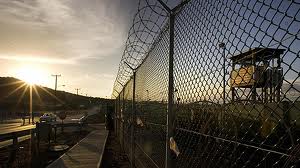
I had spent several days without any news of Oleivys and Jimmy. My life was consumed by the uncertainty of not knowing how my loved ones were doing. I could not gather the nerve to write to my wife, and I had little to tell her.
On a Thursday, without prior notice, a guard approached my cell and informed me that I should get ready for a visit. My first thought was that the sky had just fallen.
I was unshaven and my hair was long, for I had not had a haircut since I was imprisoned. My family visit would be the perfect moment to change my appearance, and so I did. When I told the guard of my decision, he informed me that, according to the punishment rules of “Poland,” shaving and cutting one’s hair was only done by a designated prisoner. I could not comprehend such extremism but I did not waste any time in trying to analyze the situation. I just wanted to see my loved ones.
After the “designated prisoner” shaved my head and my face with an electric razor, an official from Interior told me that I must take off all my clothes, including my underwear. I did so with a mixture of pain and embarrassment, for my privacy was being violated. After they meticulously searched through all my belongings I was allowed to finally go out and see my family. Later, when I returned from the family visit, other prisoners told me that the authorities always search for belongings in that same manner to prevent any written denouncements from leaving the jail to the outside world.
I asked the guard who was leading me to the office where my family was to please take off my shackles, for I did not want my son, Jimmy, to see me that way. And I also did not want the boy to have to ask me any questions which would require me coming up with lies for answers. His response was, “I follow orders, inmate. I hope you understand this, but I can’t do what you’re asking me to do.” It was the first time my son saw me handcuffed.
All the hugs and kisses were accompanied by unwanted, but inevitable, tears which spilled out from the soul. My child, oblivious to reality, asked me, “Dad, why do they put those things around your hands?”
“My son, I’m playing a game of cops and robbers. It’s only a game,” was the response I could come up with.
He wanted to know when I would be done with “this school.. With a knot in my throat I had to tell him that I was not sure. With a voice full of innocence he told me, “I’m behaving and I’m eating all my food.” I took him into my arms because I did not want him to see me crying.
After ten minutes, Jimmy fell asleep in my arms. Oleivys then told me that he had woken up at 4 am for the long trip and had not shut his eyes for one second to catch some sleep. My family had traveled 400 km to come see me. Having my son asleep in my arms made me feel joy and torment at the same time, so much so that I burst into tears. Oleivys, my brother Alexey, and I hugged each other in silence. I can’t remember how long we were like that, crying.
My wife was the one who snapped out of the dramatic scene and said, “We only have 30 minutes, a guard informed me.”
“What?! Thirty minutes after traveling so many kilometers?” I cried desperately.
“Don’t worry, love, Zamora, the father-in-law of your brother is waiting for us outside,” a lively Oleivys said.
“They’re SOBs,” I said sadly.
Oleivys brought me up-to-date on recent events within and outside the island. The unfavorable campaign of the Cuban government after our arrests and summary trials. The sentences imposed on us ranging from 6 to 28 years. Amnesty International declaring us “Prisoners of Conscience” after the sentences.
Alexey and Oleivys were still worried about my health. In barely two months I’d lost 35 pounds. Seeing my physical and emotional state my wife requested a meeting with State Security officials in Ciego de Ávila but the political police there rejected all responsibility and attributed it to the direction of Aguica.
Before we parted, Captain Peñate, an official from State Security met with us. He said family visits wold only be every three months, and only two hours long; two adult relatives and the children. Conjugal visits would be every five months for three hours, and only 30 pounds of raw food would be allowed. We were forbidden visits from friends or our companions in the struggle. We understood from the first moment that the objective was to destroy our morale, mercilessly. My loved ones and I said goodbye with tears and hugs.
Or cause gave us a moral strength that enabled us to face this difficult situation. We appealed to the greatest optimism and created a mechanism for us to support each other. Our families did the same thing. Every six months we prepared ourselves body and soul to be released. I soon came to the conclusion that the longer they kept us in prison, the more the dictatorship weakened.
The first letter I received from my partner was balm of joy mixed with a certain pain. She told me that when they left the prison our son slept in the arms of my brother Ale, and when he opened his eyes he confused him with me because of the physical similarity between us. His child’s innocence led him to ask, “Papá, we’re already going home? That’s great!”
Ale, his heart filled with sorrow, said no, he was his uncle and that his father had stayed at the school. The adults riding in the car groaned silently, weeping from their souls on hearing the innocent words of a boy of four. We parted with no justifiable reason and no one with an ounce of justice and dignity had felt such evil.
I was never able to finish reading that letter, it was too painful. Perhaps one day I will, by the grace of God and knowing that the cause of all that is now in the past.
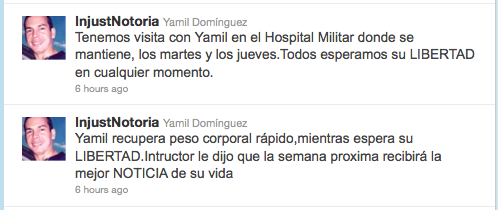 We visit with Yamil in the Military Hospital where they have him, Wednesday and Thursday. We are all expecting his RELEASE at any moment.
We visit with Yamil in the Military Hospital where they have him, Wednesday and Thursday. We are all expecting his RELEASE at any moment.
Yamil is regaining weight quickly, meanwhile expecting his RELEASE. The Instructor [an official] told him this coming week he will receive the best NEWS of his life.
I have a friend, a native Palma Soriano, who settled in Santiago years ago. My friend is a priest. For me, it’s as if he were a master electrician as we are friends despite his priesthood and my atheism. My husband calls him “Father” and uses the formal “you” when speaking to him, but to me, he’s “Hey you! José Conrado…”
He, far better equipped than I for any philosophical discussion and, a great conversationalist, he manages to leave me speechless. I prefer to listen to him because his erudition is always enriching. Such knowledge is shared among laughter and anecdotes, it only gets serious when talking about Cuba, and when he speaks of his parish, as simple a place as you could find. My friend the priest prays every day for the Cuban people. I like knowing that I am in his prayers, I like the relationships we have built, I like the philosophy of life he lives by: Between leaving or laughing, José Conrado Rodríguez Alegre has chosen laughter.
February 16 2011
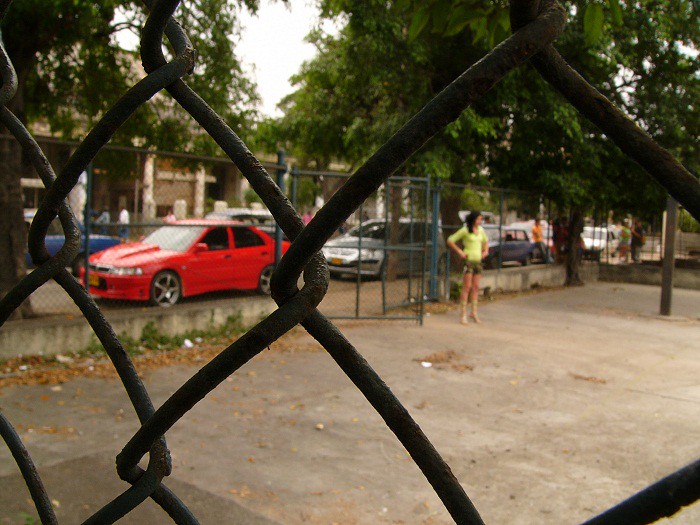
I’m sitting at the computer with the TV on in the background — sometimes I’m a little masochistic — and suddenly my attention is grabbed by a list: iPod, iPhone, DVD, cell phones and flash memories. The announcer explains that kids these days are experts at working these technological implements. I think about the kids in front of my house and can’t imagine them “controlling” an iPhone. I’m sure they’ve never seen one.
The program is Hurón Azul–Blue Ferret–and the subject is informal access to information, particularly audiovisuals. And what a title! In Cuba today information is divided between formal and informal. When did the official media cease to exist? I didn’t know. The program consists of short interviews where specialists give their opinions. I’d be delighted to be able to say they talked about everything, but as far as opinions go, they said almost nothing. I admire my capacity to still be surprised by the level of censorship, zealotry, and muzzling on display on our formal (?!) National Television.
The announcer explained to us how the independent consumption of information is so widespread that people can’t “distinguish” among the different possibilities. A gentleman said that the public is used to seeing monstrous things. According to them the productions with the widest circulation don’t exhibit artistic or cultural qualities and the young people prefer–a capital sin–entertaining shows and soap operas. To qualify this reactionary point of view, someone intervened and said, “I have the freedom to watch what I want.” But as it might contribute to his self-improvement if he watches other things, the institution does have the responsibility to provide them. The climax came when the gentleman protested that there are people who pass on information–unfortunately–without any control. According to him it should be against the law, there need to be controls on the circulation of alternative material.
I almost fell off my chair. Control over the flow of information in Cuba? My God! Indeed, we are in an information blackout, fifty years behind the times and without too many possibilities. The press, radio, television answer directly to the Communist Party Central Committee. There isn’t the slightest chance of there being any competition to the State’s mass media and they have the cynicism to want more control? The independent press is harassed by the government and the dream of access to any kind of public space is a chimera.
How could they control it any more? It’s ridiculous. In addition, it always seems to me a city-focused program, from a tiny Havana that encompasses Siboney to Vedado, excluding the miserable dying suburbs full of people who have never even seen a flash memory. How can they talk about audiovisuals and DVD equipment–one of those interviewed called it “the monstrous DVD” if he saw an iPad–when most of the countryside doesn’t even have telephone lines? Who would think that an institution is responsible for the soap operas and serials that I want to see? Or that there must be a policy of controlling the consumer even when they’re not watching television? What century is Cuban television living in?
That the new technologies have arrived, there is now no doubt, because they themselves say it’s so. But it’s thanks to the tenacity of the Cuban people in accessing everything the government has tried to steal from us. Though it’s still a newly hatched phenomenon on this island, I honestly don’t think they have the slightest chance of stopping it.
It’s hard to find two high points in the same show, but when the announcer concluded with the emphatic phrase, “Technology, the universal right of our time,” I fell off my chair for a second time.
15 February 2011
 Talking about Cuban doctors today brings to mind a new kind of slavery, of sad pieces used on a chessboard. Through misfortune, the doctor Oscar Elías Biscet — a free man in the damp shadow of his cell — is hardly alone.
Talking about Cuban doctors today brings to mind a new kind of slavery, of sad pieces used on a chessboard. Through misfortune, the doctor Oscar Elías Biscet — a free man in the damp shadow of his cell — is hardly alone.
I believe that few professionals in the world face a situation more precarious in regard to individual liberties, than this army of doctors that in my Cuba of the twenty-first century are not masters of their own lives.
True: No one in Cuba is the master of their life. But the men and women in white coats, even less so.
I am thinking now about one more, one recently arrived in special conditions, pouring a drop into the receptacle of the outrageous. His name is Rafael Fontirroche, pediatric surgeon and he needed to make a hasty escape to the United States, and later on to denounce the corruption of the medical program in Nicaragua, to which he belonged at the time.
Obviously, the story of this surgeon isn’t anything extraordinary. It just joins the ranks of the doctors who, speaking of their lives, knowing the almost eternal punishment that awaits them, decide to escape from the countries to which they were sent by the Government and to remake their lives where they will be the true owners of them.
Everything began with a new economic strategy. The redeeming idea, the injection of a mountain of money in a dying economy, consists of forgetting about carnivals and coffee, forgetting about beaches and tourism, forgetting also about the army of computer specialists with which the Greater Antilles tried to lead a production of world class software. Forget any prior strategy… and look to the men of Healthcare.
Like everything in my island country: A visionary of power gave the order, and the whole nation undertook the task. It will be a bit more than a decade since then.
I seem to remember precisely those times when the medical euphoria had its main peak: I was studying in a high school in my city, year 2000, and suddenly a career until that moment difficult to obtain, privilege of the hardworking and talented few, was made available to everybody.
Entrance exams for careers in Healthcare, especially Medicine, become impossible to fail. The academic level to qualify for the profession fell spectacularly. The sign was clear: “We need to form a legion of doctors.” No matter what.
And later, of course, began the international proposals. Based on what? With what card up the sleeve? Well, with a controversial but true fact: the level of Healthcare professionals, in Cuba, is undeniably high.
We separate scarce technology from educational level. We separate the ruins in which one finds the hospital network in Cuba, with instruments and methods from the Jurassic period — that allow, for example, wrong cancer diagnosis like the one they gave me four months ago — from the talent and dedication that Cuban doctors exhibit in their daily work.
Starting from there, our Government very thoughtfully decided what to do with the destinies of these professionals. “They will be our soldiers in white lab coats” — said the Chief Comandante one time. And things were never the same.
Because soldiers only obey orders. And strict orders, unbreakable, under penalty of hard punishments and strict consequences.
They began to be sent to the most unexpected corners on the planet. Both to countries that established hard cash payments in exchange for medical service, and to regions hit by hurricanes, earthquakes, and so much disaster that they disappeared throughout the four corners of the globe, where the international political lobby was the only reward.
What do these altruistic doctors say, in support, when Cuban Television cameras put a microphone in front of them? They say: “I do it for love of solidarity.” They say: “I do it for internationalism.” And I, and many, are surprised by the skill in lying which has been inoculated under our skin in so many years of revolutionary socialism.
Because the truth is that those men of science abandon their recently born children, abandon their wives — who in many cases, from then on no longer will be — they leave their own lives in Cuba, because it’s the only way to raise their terrible economic state.
And they leave also, the vast majority of them, with heavy hearts bound for Pakistan and Haiti, bound for lands where cholera or poisonous snakes lie in wait for them, because they know well the blackmail underlying the order to leave: If they don’t do it now, if they refuse, they will never be called for “missions” in Venezuela, South Africa, or Bolivia. The countries where they could really make some money.
And let’s say once more “something” about money, because like in all cases, the leaders of their battalion, the think tanks of these solidarity missions, know that he who divides and distributes gets the biggest cut. The Cuban State business in Healthcare professionals is more repulsive by the minute.
Just to give an example: In 2010 the British Medical Journal classified as “slavery” the situation of certain Cuban doctors in Portugal who received a salary much lower than the minimum established in that country, in spite of the Portuguese government paying the same for them as for native-born professionals, the only difference being that they had to pay it through the Cuban Embassy.
In route to their hands the pay was reduced to a symbolic sum. Annoying.
However, since it will never be lower than what they are paid for hours spent in Cuba where the maximum they can reach after years of achievement and experience is around 40 CUC (roughly $40 U.S. a month), these tropical doctors feel themselves fortunate. And they shut up.
Nobody dares to protest. Those who forget their condition as state property and raise their voices against injustice have two routes: Ruthless sacking from their careers on the Island, where they will never return to be full professionals; or the destiny that the surgeon Fontirroche chose: Exile. Forever.
That’s why we then arrive at one of the central points of this condition of medical serfdom: since by grace of a presidential decision they become exclusive property “of the Nation,” nowhere on the globe exist beings with less possibility to emigrate in the usual way than them.
First: Because they are penalized with 5 years of waiting, at times more, until the fantastic Permission to Leave arrives in their hands. In this time they are sent to remote areas, mountainous, sparsely inhabited, as atonement for their sin of wanting freedom.
And next: Because in case they decide to “desert” from the assigned missions, the castle raises the drawbridge forever, and never again can they return to Cuba. They are converted into another crowd of exiles due to the decision of the big bosses of our Gulag.
Here I have met, by the hundreds: Stomatologists who crossed Venezuelan borders with nerves swollen by fear and desolation; nurses, orthopedists, recent young graduates that after landing in Namibia or Guatemala enrolled in semi-illegal expeditions to the United States, knowing that Cuba where they were born and where they left their families and wives will, in the future, continue to feed their memories and melancholy.
While the owners of their Island live, they cannot enter.
Looking behind the curtain of smoke that this case creates, I think that more than pain or insensitivity, the history of some doctors that suddenly lost all autonomy and mutated into state property, should cause fright, some sleepless nights, in those Cubans who still can travel without 5 years of official purgatory.
Raise your hands those who think you know, with total confidence, what will be the next economic strategy implemented by the establishment to save, this time for certain, the Nation from total ruin. Raise your hands whoever is sure that soon the members of a new army whose liberty will be cut off by official decree won’t include chess players, accountants or amateur singers.
Translated by Dodi 2.0 and others
February 14 2011
The Cuban regime “freed” two more political prisoners from the Black Spring Group: Héctor Maseda, husband of the Lady in White Laura Pollan, and Ángel Moya, husband of Berta Soler, also a Lady in White.
All this has been made possible by the efforts of the Ladies in White, the sacrifice of Orlando Zapata Tamayo, the long hunger strike of Guillermo Fariñas, all the efforts of the internal Cuban opposition, and also international solidarity (from exiled Cubans and also non-Cuban friends).
But it’s important to note that despite this good news there are still 7 prisoners of conscience from the Group of 75 behind bars:
Pedro Arguelles Moran
José Ferrer García
Oscar Elías Biscet
Librado Linares García
Diosdado González Marrero
Iván Hernández Carrillo
Félix Navarro Rodríguez
Also we should note that in addition to these 7 courageous prisoners, there are other political prisoners who are not part of the Group of 75, and Cuban prisons. Freedom for all the political prisoners in Cuba, without conditions!!
Please see Pedazos de la Isla / Pieces from the Island, for more news about the political prisoners in Cuba and the bloggers who appear in translation in Translating Cuba. Voices Behind the Bars is the blog of the prisoners still in prison, and Cuban Voices From Exile, is a blog from some of the released prisoners now in exile.

“Poland” is the most rigorous section of Aguica Prison, made up of a 16-cell complex outside the prison. Only common prisoners have access to it and the guards have total authority over it. Usually, one of the prisoners must clean both hallways, leaving the area ready for the guards.
In this area, the guards are handpicked and functionaries from the interior order rarely visit.
Generally, the most dangerous prisoners are kept in “Poland”: punished prisoners, prisoners with life sentences, and prisoners with death sentences. The prison’s laundry is located in the bottom room of this area, as well as the kitchen’s chimney. According to the inmates and the guards, this specific room was built over a cemetery, and the construction style is very similar to those of Eastern Europe. In fact, it is speculated that the first director of Aguica traveled to the Old Continent to study their penitentiary architecture, to later replicate them on the island. Whatever the case may be, the underlying fact is that this place was constructed specifically to torture prisoners.
They began to make the prison food at around 3 or 4 in the morning, and its preparation lasted up to around 6 am, more or less. At around that time, the guards start their “inventory of prisoners”, and an hour later begin the laundry chores until 11:30 am, to later continue at 2 pm. Up to this point, everything seems to be rather normal but once the harsh noises start coming from the kitchen and laundry room, it is impossible for any human to be able to fall asleep. With those tortures, the guards have achieved unbalancing the minds of the common prisoners, and I am sure that the authorities tried to commit the same crime against us.
The dungeons of the “Poland Area” measure 2.5 meters in width by 3 meters in length and contain a small patio and bathroom (which consists of a hole on the ground). There are cracked tubes on the patio roof and whenever it rains the cell gets full of water.
In the winter the prisoners tie their bedspreads to the iron bars on the roof, pulling themselves up to try to get at least 1 or 2 hours of sun. If the sheets tear then prisoners fall and break their bones (in the best of cases).
Common prisoners told me that before our arrival, the beds which were currently chained to the wall were quickly hung there, and later they were to be put down again at around 10 pm. In addition, the walls are not plastered in order to keep any prisoner from laying back and resting on them.
Out of all the humiliations faced by the prisoners of “Poland”, the worst one has to do with how they must get their drinkable water. In order to fill their bottles with this precious liquid, they must extract it through a tube out of the same hole where they urinate and defecate. The container must be placed inside the hole, and prisoners can only do this two times in one day. Furthermore, it is prohibited to have any light bulbs or cleaning materials inside the dungeons. According to the guards, these measures are taken for “security reasons”.
A few minutes after the Interior Order functionary arrived at “Poland” he examined every centimeter of my belongings. I also had to strip myself of my clothes. “What the hell are they searching for?” I asked myself. Later, I understood that this was just another act of humiliation. After half an hour I was in cell number 4 — my new home -– surrounded by other prisoners in adjacent cells. Fortunately, I was nearby Manuel Ubals Gonzales, Miguel Galban Gutierrez, and Alexis Rodriguez Fernandez. All of these men quickly greeted me and passed me clandestine notes in which they explained the specifics of the place and of the prisoners around us.
One may consider 16 months to be a breeze, but in “Poland” the minutes are hours, the hours are days, the days are weeks, the weeks are months, and the months are years. Think of it this way — if life passes by quickly while in freedom, then in prison it goes by extremely slow, consuming your desire to live, and if you do not find some sort of shield, then you inevitably end up destroyed.
NOTE: Pablo Pacheco was one of the prisoners of Cuba’s Black Spring, and the initiator of the blog “Behind the Bars.” He now blogs from exile in Spain and his blog – Cuban Voices from Exile – is available in English translation here. To make sure readers find their way to his new blog, we will continue to post some of his articles here, particularly those relating his years in prison in Cuba.
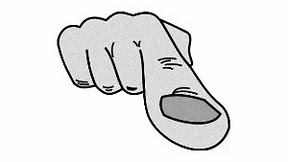 The scene opens with several friends sitting on any corner of Havana. They are talking, rather shouting, while passing a bottle from hand to hand. They are heatedly arguing about how bad it is out there; no one contributes a solution for a better way of getting by, and they conclude that the best way is to leave here for “…over there…?…” One of them comes up with a plan of escape. His friend listens to him quietly, takes him away from the group and brings him to a park, where they sit. He tells him:
The scene opens with several friends sitting on any corner of Havana. They are talking, rather shouting, while passing a bottle from hand to hand. They are heatedly arguing about how bad it is out there; no one contributes a solution for a better way of getting by, and they conclude that the best way is to leave here for “…over there…?…” One of them comes up with a plan of escape. His friend listens to him quietly, takes him away from the group and brings him to a park, where they sit. He tells him:
Kid, when you’re depressed, don’t vent your frustrations in public. You don’t know who is who, you’re looking for trouble. Don’t say you’re going to take the boat to Regla to get the fuck out of here … or that you’re going to bomb the fucking Council of State so all the old people die! … watch out! They can punish you for illegal departure or for terrorism, which is worse. Remember the three black guys they shot for the same thing in 2003 … (His buddy doesn’t let him finish.)
Pal, that’s fucked. You know that when I have a couple of drinks I start talking shit…! But why, I’m not doing anything wrong. “Look innocent,” as they say here. “It’s a long way from words to action.”
I know, but your thinking is dangerous, and if someone hears you, he can steal the idea and develop it, and then accuse you of being the intellectual author, an accomplice or an instigator. Take my advice: in this country, to talk out loud about what you think or your hidden desires is risky. People will always listen and even give you rope, but at the moment of truth they will deny having eaten the cake and will throw you aside like someone to be shunned. I know that rum removes the pain, but I repeat, look, it’s not a joke, be very careful. He says this while insistently waving his index finger.
But how will they find out what I said?
Don’t be naive! For the courts, evidence from secret operations is sufficient. In this country informants multiply like fish in the sea. This is not like the CSI Las Vegas crime scene, where they need physical evidence to incriminate you. Here, just for moral conviction, you can get 20 years.
Don’t exaggerate, he says, with disbelief.
Be careful, you who go all the way to Mariano to get cheaper liquefied gas. Imagine the police stopping you and taking you in and pulling out your criminal record. All the fines for disorderly conduct, every time you pissed in the park after two drinks, arguing with an old Communist. These people have no solution, they’re eating dirt and will continue until “he” dies. But when you ask them to open their mouths, they talk your arm off. That’s a duty for them.
I know, pal, but they get on my nerves, he concludes with resignation.
As I was saying, here they know everything and at the same time know nothing. They get you angry, they can think that you’re doing something to destroy a strategic objective of the Revolution. I’m not trying to scare you; I’m just warning you. He again waves a finger in his face, while he looks to see if anyone is listening.
If that were the case, they would put everyone in jail. Do you know how many people are crazy to leave this country, or to blow up all this shit? No, and that’s not all. How many would kill themselves with bombs and everything, so that Cuba’s problems would disappear?
Don’t you know the story about the guy in the bodega who said he’d dreamt he killed Fidel? They sentenced him to not dream any more. Pal, there are thousands who think like you, but there are more who speak in whispers.
The curtain comes down; the show is over.
Translated by Regina Anavy
February 14 2011

Distance?
Memory?
limits which my country invents
vain farewells
the gondola
the oar
the nostalgia…the postcards…
(From my unpublished book of poems)
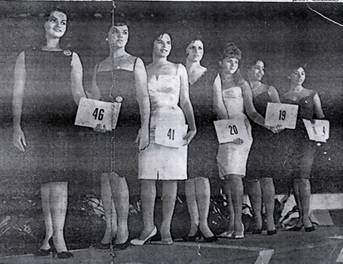
The year has begun, and we see timbiriches* sprouting all over, selling mostly the same products that are sold neighborhood after neighborhood. Necessity has made everyone set up tables outside to sell—in the hope of deriving some financial benefit from it—all sorts of products. The ones that have proliferated the most are the ones that sell food items. It’s logical: when money is scarce, food tends to be the only thing that sells. Bread and roasted pork, bread and ham, bread and omelet, cheese pizza, etc. The omnipresent ingredient is bread.
Many people are already speculating on the scarcity of bread and flour at grocery establishments. The long lines are back—all the time—in front of the stores that sell both items. If you are successful in buying bread, even when it is not expensive (10 pesos per pound) it is seldom of good quality. It usually lacks fat, or it has not been properly baked.
Just the other day, when my friend Armando returned from the bakery with a pound and a half of bread, a very tidy gentleman—even if humbly dressed—approached him with very good manners and explained to him, ashamed, that he had not eaten for the day and did not have the ten pesos to buy liberated bread (that is bread that is not sold through the rationing system). He asked if he could have a piece. My friend, moved by such strange request, immediately gave him the half pound he had just bought. Still amazed by what he had experienced, he told me what had just happened: “The worst of all this—he said—is that, for fifty years now, we have been flailing around in the dark, and we still insist in implementing already tried models that, in the long run, did not produce any results because we didn’t first prepare the proper infrastructure.”
*Translator’s note: Timbiriches is a Cuban word meaning a very small business, such as a stand, kiosk, umbrella, or selling out of one’s home.
Translated by T
January 23 2011